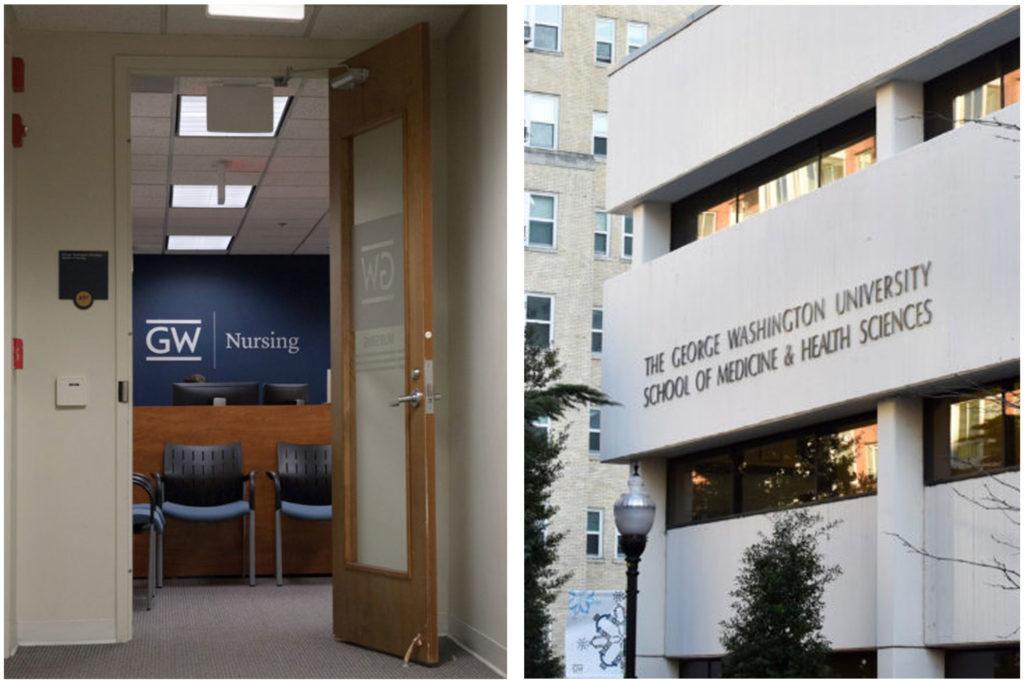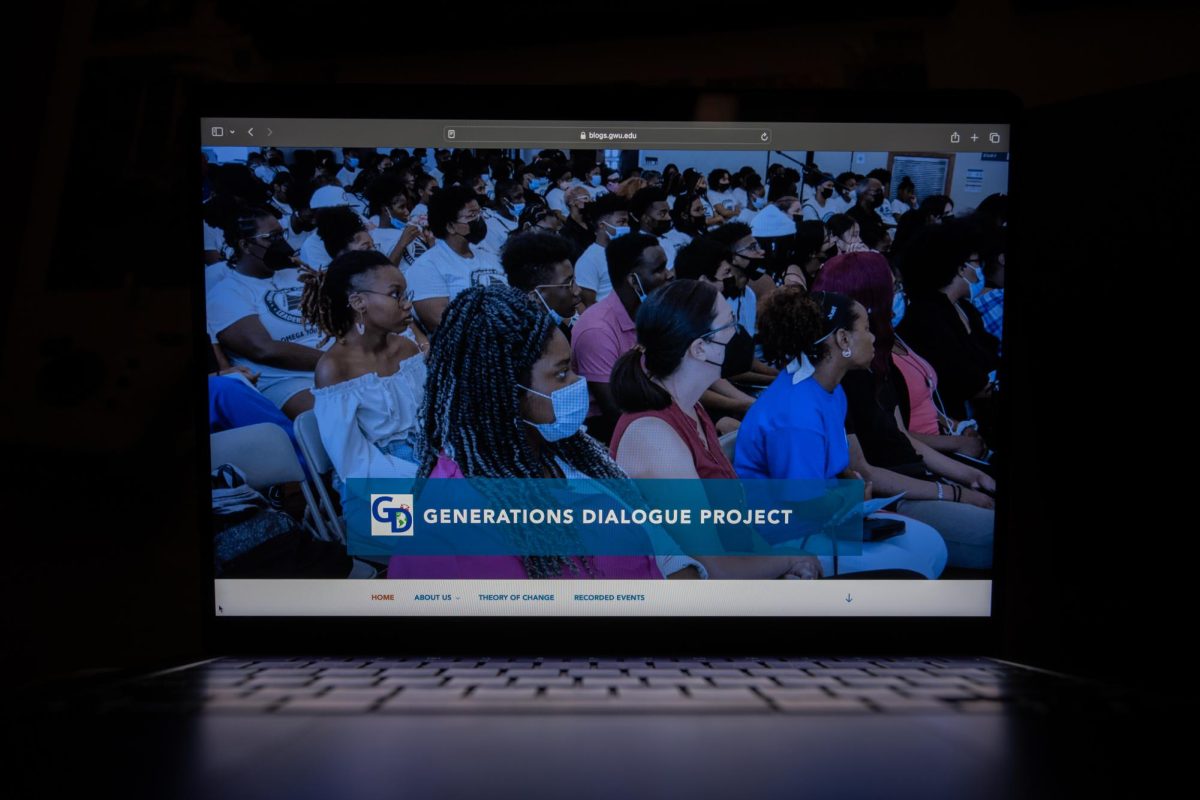The School of Nursing and the School of Medicine and Health Sciences are offering dual enrollment courses this fall to Alexandria high school students who want to enter the nursing field.
The Governor’s Health Sciences Academy, now in its second year, allows high school students in Alexandria City Public Schools to take dual enrollment nursing courses with GW and attain a Clinical Nursing Assistant certification in Virginia after completing 18 college credit hours through the program. Coordinators within the two GW schools said they developed the nursing aide program to increase diversity in Virginia’s nursing field and encourage students to become nurses to address the nationwide staffing shortage in hospitals due to national population increases.
Jennifer Walsh, a clinical assistant professor of nursing and the academy course director of the nurse aide program, said officials developed the dual enrollment courses to help high school students practice clinical skills of nursing like checking vital signs. She said after the students graduate from the program and pass the certified nursing assistants licensure exam, they are qualified to work as nursing assistants out of high school and can earn about $20 per hour.
She said the program is open to high school juniors and seniors from Minnie Howard High School and Alexandria City High School who will take Nurse Aide I and Nurse Aide II at Alexandria City High School. She said ACHS students could take nurse aide courses at ACHS prior to the partnership with GW, but they struggled with the clinical, hands-on components of the classes like putting on personal protective equipment.
Walsh said University officials merged the medical school’s Governor’s Health Sciences Academy – a program for high school students to earn college credit in “career and technical education” – with the ACPS nursing courses to offer college credit for the classes.
“We identify some of the challenges students may have,” Walsh said. “We definitely want to make the course developmentally appropriate.”
Walsh said about 80 to 90 percent of students who have graduated from the program indicated in an exit survey that they wanted to continue in the health science field after they finished the program.
“We basically have a great partnership in order to identify those high school students’ needs and to make the best courses that they can add to a good foundational nursing course,” Walsh said.
Karen Dawn, an assistant professor of nursing and one of the coordinators of the program, said she and Walsh designed the dual enrollment courses to address the nationwide nursing shortages, especially as their demand increases with an aging American population. Dawn said an increasing workload, stagnant incomes and long work hours have led to nursing shortages across the country.
In 2021, about one percent of people in Virginia are registered nurses, but 1.2 million new registered nurses by 2030 could solve the nationwide shortage, according to a study by the University of St. Augustine for Health Sciences.
“We need to recruit more nurses,” Dawn said. “How do you do that? One way is to develop this type of partnership with people who are young and thinking about what career they may want to go and get into.”
Dawn said students in the program toured the Virginia Science and Technology Campus and spent a day in the School of Nursing’s simulation center, an area in the nursing school where students can simulate patient interactions using real equipment, like EKG monitors in a surgical room. Dawn said she wishes the students could visit GW’s campus again, but due to a bus driver shortage and a lack of funding from the University for transportation, they are unable to bring the students back to campus and are keeping courses at ACPS.
Dawn said students who take dual enrollment courses in the nurse aide program will be able to earn a college degree with less schooling after high school and have firsthand experience in nursing before entering the workforce.
“This is an opportunity for them to actually see what nursing is like at a young age, which is really foundational for these adolescents,” Dawn said.
Eduardo Salazar, a second-year nursing student and a program aide, said he helps teach in the nurse aide program in Virginia as part of his one-on-one clinical mentorship requirements in the School of Nursing. Salazar said he would appreciate more funding from GW for resources like stethoscopes because some students were having trouble financing the equipment and had to pay for it themselves.
“Some of the students were talking about buying scrubs, but some of them were having financial issues and it was just very sad to see that,” Salazar said.
He said he splits each class into a lecture with his instructor and a skills training session, which includes observing students checking vital signs and quizzing them on health-related material like the normal range of heart rate. He said he worked with another nursing student to create lesson plans, covering topics in nursing like aiding with pressure sores and taking blood pressure.
“It was just this good kind of relationship between me as a nursing student and them as nursing students that I really enjoyed,” Salazar said.







